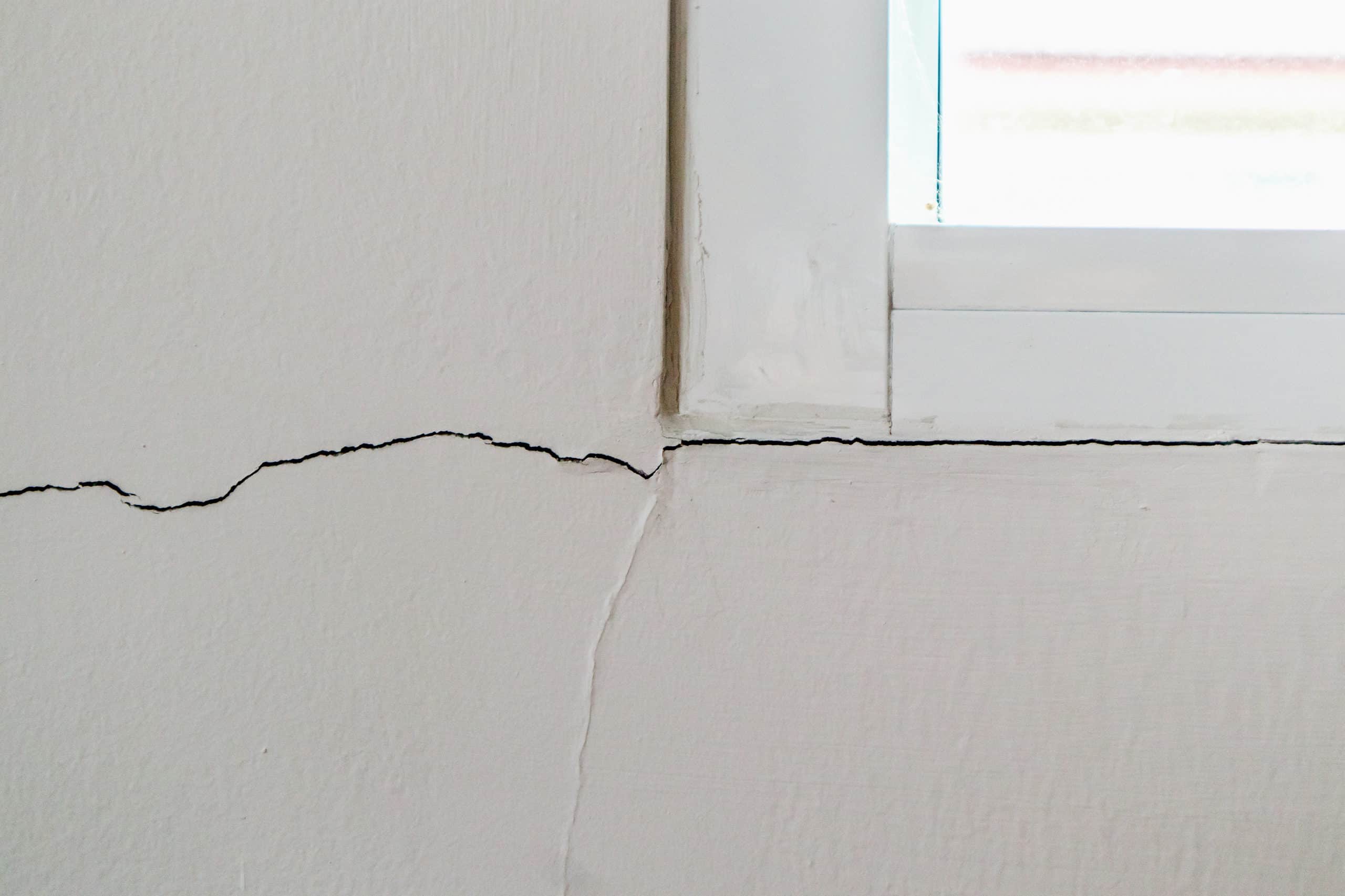Maintaining your home is costly. Little—and sometimes big—repairs constantly need to be made. Foundation problems lead to some of the most costly and labor-intensive repairs that your home might need. It’s crucial to know the warning signs and take action as soon as possible so you can address and repair the issues before they become even more complex and involved. Below are eight common signs of foundation problems that you need to be able to recognize so you can intervene before irreparable damage is done.
Doors and Windows are Difficult to Close
If you notice that your doors are sticking or that you really have to put your back into closing your windows, those things might be signs of a shifting foundation. When your foundation moves, door and window frames are often the first parts of your home that suffer. As your house moves and shifts, the frames move and shift as well, causing them to be compressed.
In some cases, your doors and windows might just need a good lubricant. Sometimes after heavy rains, the humidity in the air will cause things to swell, making your doors and windows stick. However, if you notice that they’re hard to close or that your doors drag for more than a few days, that’s a sign of a more serious problem, and you want to hire a contractor as soon as possible.
Ceilings are Sagging
You never want to look up and see that your ceiling is sagging. Unless you’ve got a leak, this is typically evidence that your foundation is experiencing some pretty severe issues. As your foundation moves and your home shifts, your ceilings will also shift, and they will compensate by sagging.
A ceiling in this state is evidence that you need to have your foundation inspected, of course, but it’s also a serious issue in itself. When your ceiling is compromised to the point that you notice it’s no longer even, it’s dangerous, as its structural integrity could more severely be compromised, causing its collapse.
Mold is Growing
Where there is mold, there is water. And if you have water or dampness in your home, that’s the sign of a problem that you need to fix immediately. Sometimes a minor leak will cause mold to grow, but mold and mildew are also indicators of a foundation problem. Check mold-prone areas to rule out leaks and to determine which areas of your foundation are compromised.
Your Home is Cracking
Little hairline cracks popping up on your wall? Not only are they unsightly, they’re a warning sign. It’s normal for very small cracks to appear within the first two to three years after construction. But if your home is older than that, and if the cracks are much larger than 1/16”, you have cause for concern.
If you are seeing horizontal cracks, call a contractor right away. More serious than vertical fractures, cracks running horizontally indicate a lot of pressure around the outer edge of your foundation which you want alleviated as quickly as possible.
Floors are Unlevel
If you see a ball rolling, unprompted, across your floor, that’s not a good sign. Floors that are uneven are indicators of problems below the floor in your foundation. As your foundation succumbs to pressure and starts to shift and crack, your floors follow suit. If you notice that your floors aren’t as level as they once were, call a professional to diagnose your foundation problems.
The Chimney is Shifting
It’s not uncommon to see old houses with chimneys on the verge of collapse. This is a tell-tale sign of foundation problems. If bricks are shifting or have fallen off, or if your chimney looks a little lopsided—assuming your contractor did a thorough, professional job building your chimney—then you’re more than likely seeing the effects of foundation issues.
While getting to the root of your foundation problems is crucial, don’t forget about having your chimney repaired in all of the hustle and bustle. Falling bricks could seriously injure people or animals that find themselves around your home.
There are Gaps Around Door and Window Frames
As we mentioned above, doors and windows that are difficult to open or close or that stick are signs that you have a foundation problem. But the opposite is true as well. If you have gaps around your door and window frames, that is a sign that your foundation is experiencing some integrity issues and that it’s is shifting.
If you see any gaps between windows and walls, or if you notice that your cabinets or counters are pulling away from your walls, you should contact your contractor, as these things—especially in combination—suggest you’ve got foundation issues.
Your Basement Smells Musty
Despite what you see in horror movies, basements should not be dank and damp. If your basement has a musty smell, something is off. It could be an easily fixable leak, but it could also be a leak resulting from shifts in your foundation. It’s best to hire an expert to rule out minor leaks. And if it does happen to be a problem with your foundation, they can advise you on the best course of action.
Conclusion
All of the identifying signs we have listed above are signals that something isn’t quite right with your home. If you think something is off, go with your gut. Hire a contractor to come out and do an inspection. By heeding these warning signs early, you can address the problems in your foundation and save yourself a ton of time, money, and heartache in the long run.

